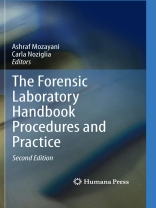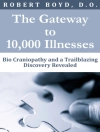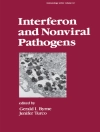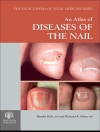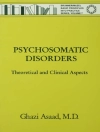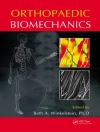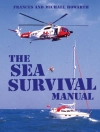Forensic science has come a long way in the past ten years. It is much more in-depth and much broader in scope, and the information gleaned from any evidence yields so much more information than it had in the past because of incredible advances in analytic instruments and crucial procedures at both the crime scene and in the lab. Many practices have gone digital, a concept not even fathomed ten years ago. And from the first collection of evidence to its lab analysis and interpretation to its final presentation in court, ethics has become an overriding guiding principle. That’s why this new edition of this classic handbook is indispensable. The Forensic Laboratory Handbook Procedures and Practice includes thirteen new chapters written by real-life practitioners who are experts in the field. It covers the tried and true topics of fingerprints, trace evidence, chemistry, biology, explosives and arson, forensic anthropology, forensic pathology, forensic documents, firearms and toolmarks. This text also addresses an array of new topics including accreditation, certification, ethics, and how insects and bugs can assist in determining many facts including a margin of time of death. In the attempt to offer a complete and comprehensive analysis The Forensic Laboratory Handbook Procedures and Practice also includes a chapter discussing the design of a laboratory. In addition, each chapter contains educational requirements needed for the discipline it covers. Complete with questions at the end of each chapter, brief author bios and real crime scene photos, this text has risen to greet the many new challenges and issues that face today’s forensic crime practitioners.
Tabela de Conteúdo
Preface.- Contributors.- Chapter 1: Forensic Laboratory Accreditation, Anja Einseln, BA, MEM.- Chapter 2: Forensic Biology: Serology and DNA, Lisa A. Gefride, MS, FABC and Katherine E. Welch, MS, FABC.- Chapter 3: Forensic Chemistry/Controlled Substances, Donnell Christian, BS.- Chapter 4: Crime Reconstruction & Evidence Dynamics, W. Jerry Chisum, BS.- Chapter 5: Explosives & Arsons, James B Crippin, BS.- Chapter 6: Fingerprints, Carmine J. Artone.- Chapter 7: Legal Issues Concerning Expert Evidence & Testimony, Carol Henderson, JD and Kurt W. Lenz JD .- Chapter 8: Digital Evidence, Robert Bianchi, BS and Mark Pollitt, MS.- Chapter 9: Firearms & Toolmarks, Edward E. Hueske, MA.- Chapter 10: Teeth & Their Secrets, Helena Soomer Lincoln, DDS, Ph.D.- Chapter 11: Forensic Pathology & the Investigation of Death, Elizabeth A. Laposata, MD, FCAP, FASCP.- Chapter 12: Quality Assurance in the Forensic Science Laboratory, William J. Tilstone, Ph.D.- Chapter 13: Forensic Documents, William L. Leaver, BS, D-ABFDE.- Chapter 14: Toxicology in the Forensic Lab, Ashraf Mozayani, Pharm D, Ph D, D-ABFT .- Chapter 15: Trace Evidence, Willliam M. Davis, Ph D.- Chapter 16: Laboratory Information Management Systems – LIMS, Simon Key.- Chapter 17: Forensic Etomology, M. Lee Goff, Ph D.- Chapter 18: Forensic Facility Plan & Design Guidelines, Kenneth C. Mohr, Jr., BS and Albert L. Hartman, BS, PE.- Chapter 19: Forensic Anthropology, Jennifer C. Love, Ph D, D-ABFA and Michelle D. Hamilton, Ph.D.- Chapter 20: Introduction to Forensic Engineering and Accident Reconstruction, Scott D. Batterman, Ph D, PE and Steven C. Batterman, Ph D.- Chapter 21: Wildlife Forensic Science, Ken Goddard, MS.- Appendices.
